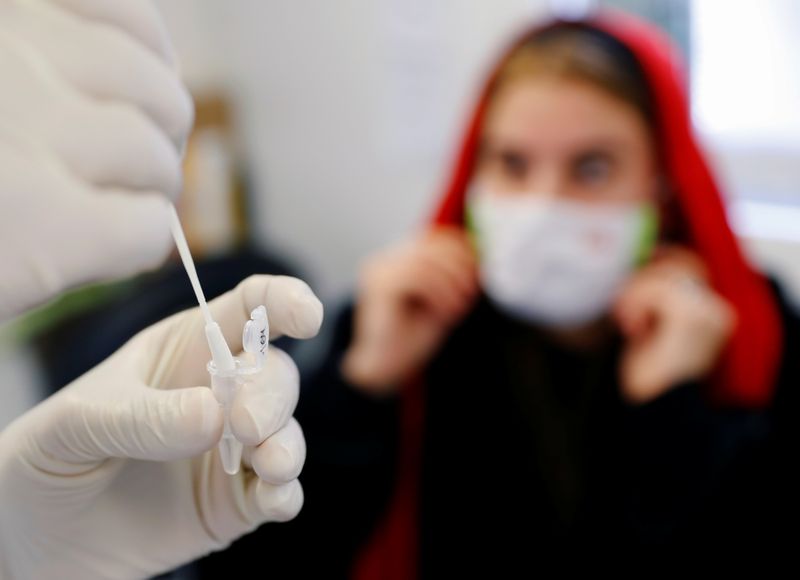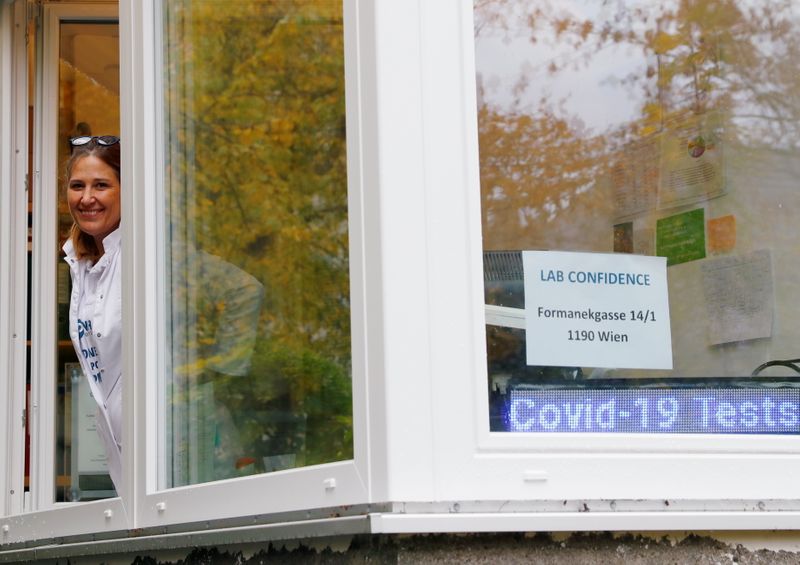VIENNA (Reuters) – Austria’s daily coronavirus infections jumped by more than a quarter to a new record on Friday, nearing the level at which the government says hospitals will be stretched beyond capacity, as it works on new restrictions to stem the surge.
Friday’s official tally of 5,627 was a jump from Thursday’s 4,453, itself a record high, suggesting the conservative-led government is running out of time to bring the numbers under control. The peak https://covid19-dashboard.ages.at/?l=en of the first wave in March was 1,050.
Chancellor Sebastian Kurz, who has said hospitals would be stretched beyond capacity at around 6,000 daily infections, will announce new restrictions on Saturday afternoon. He has said an economically damaging second lockdown would be a last resort, but Austrian media reported tough measures in the works.
“The dramatically rising infection numbers in Austria and many European countries will require restrictions on public life and also affect the domestic economy,” the Finance Ministry said in a statement, adding that it was working on additional economic aid measures to save jobs and keep companies afloat.
Austria’s current anti-coronavirus measures are relatively loose – bars, restaurants and theatres remain open.
Several Austrian media reported on Friday evening that a curfew from 8 p.m. to 6 a.m. was planned, albeit with exceptions allowed for those going to work or simply exercising outdoors.
Restaurants would no longer be allowed to serve guests but could provide take-away service outside curfew hours, theatres and cinemas would have to close and hotels could only accept new guests travelling for work or training, national broadcaster ORF said, citing a draft of the planned government decree.
Several other media also said they had obtained the draft text and published extracts, saying it was due to expire at the end of November, but it was not clear when exactly it was intended to go into force.
Influential tabloid Kronen Zeitung said ski lifts would only be open to top athletes and in exceptional cases such as rescues.
Shops and schools would, however, remain open, several media reported, with shops having to limit the number of customers allowed in at one time to one person per 10 square metres of floorspace.
(Reporting by Francois Murphy; editing by Alison Williams and Jason Neely)
























